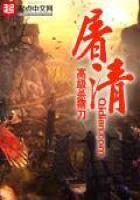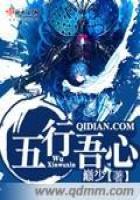"Nitchevo, Barin, proyedem" ("There is no danger, sir; we shall get over"), he repeats. You may refer to the generally rotten appearance of the structure, and point in particular to the great holes sufficient to engulf half a post-horse. "Ne bos', Bog pomozhet" ("Do not fear. God will help"), replies coolly your phlegmatic Jehu. You may have your doubts as to whether in this irreligious age Providence will intervene specially for your benefit; but your yamstchik, who has more faith or fatalism, leaves you little time to solve the problem. Making hurriedly the sign of the cross, he gathers up his reins, waves his little whip in the air, and, shouting lustily, urges on his team. The operation is not wanting in excitement. First there is a short descent; then the horses plunge wildly through a zone of deep mud; next comes a fearful jolt, as the vehicle is jerked up on to the first planks;
then the transverse planks, which are but loosely held in their places, rattle and rumble ominously, as the experienced, sagacious animals pick their way cautiously and gingerly among the dangerous holes and crevices; lastly, you plunge with a horrible jolt into a second mud zone, and finally regain terra firma, conscious of that pleasant sensation which a young officer may be supposed to feel after his first cavalry charge in real warfare.
Of course here, as elsewhere, familiarity breeds indifference.
When you have successfully crossed without serious accident a few hundred bridges of this kind you learn to be as cool and fatalistic as your yamstchik.
The reader who has heard of the gigantic reforms that have been repeatedly imposed on Russia by a paternal Government may naturally be astonished to learn that the roads are still in such a disgraceful condition. But for this, as for everything else in the world, there is a good and sufficient reason. The country is still, comparatively speaking, thinly populated, and in many regions it is difficult, or practically impossible, to procure in sufficient quantity stone of any kind, and especially hard stone fit for road-******. Besides this, when roads are made, the severity of the climate renders it difficult to keep them in good repair.
When a long journey has to be undertaken through a region in which there are no railways, there are several ways in which it may be effected. In former days, when time was of still less value than at present, many landed proprietors travelled with their own horses, and carried with them, in one or more capacious, lumbering vehicles, all that was required for the degree of civilisation which they had attained; and their requirements were often considerable. The grand seigneur, for instance, who spent the greater part of his life amidst the luxury of the court society, naturally took with him all the portable elements of civilisation.
His baggage included, therefore, camp-beds, table-linen, silver plate, a batterie de cuisine, and a French cook. The pioneers and part of the commissariat force were sent on in advance, so that his Excellency found at each halting-place everything prepared for his arrival. The poor owner of a few dozen serfs dispensed, of course, with the elaborate commissariat department, and contented himself with such modest fare as could be packed in the holes and corners of a single tarantass.
It will be well to explain here, parenthetically, what a tarantass is, for I shall often have occasion to use the word. It may be briefly defined as a phaeton without springs. The function of springs is imperfectly fulfilled by two parallel wooden bars, placed longitudinally, on which is fixed the body of the vehicle.
It is commonly drawn by three horses--a strong, fast trotter in the shafts, flanked on each side by a light, loosely-attached horse that goes along at a gallop. The points of the shafts are connected by the duga, which looks like a gigantic, badly formed horseshoe rising high above the collar of the trotter. To the top of the duga is attached the bearing-rein, and underneath the highest part of it is fastened a big bell--in the southern provinces I found two, and sometimes even three bells--which, when the country is open and the atmosphere still, may be heard a mile off. The use of the bell is variously explained. Some say it is in order to frighten the wolves, and others that it is to avoid collisions on the narrow forest-paths. But neither of these explanations is entirely satisfactory. It is used chiefly in summer, when there is no danger of an attack from wolves; and the number of bells is greater in the south, where there are no forests. Perhaps the original intention was--I throw out the hint for the benefit of a certain school of archaeologists--to frighten away evil spirits; and the practice has been retained partly from unreasoning conservatism, and partly with a view to lessen the chances of collisions. As the roads are noiselessly soft, and the drivers not always vigilant, the dangers of collision are considerably diminished by the ceaseless peal.
Altogether, the tarantass is well adapted to the conditions in which it is used. By the curious way in which the horses are harnessed it recalls the war-chariot of ancient times. The horse in the shafts is compelled by the bearing-rein to keep his head high and straight before him--though the movement of his ears shows plainly that he would very much like to put it somewhere farther away from the tongue of the bell--but the side horses gallop freely, turning their heads outwards in classical fashion. I
believe that this position is assumed not from any sympathy on the part of these animals for the remains of classical art, but rather from the natural desire to keep a sharp eye on the driver. Every movement of his right hand they watch with close attention, and as soon as they discover any symptoms indicating an intention of using the whip they immediately show a desire to quicken the pace.














